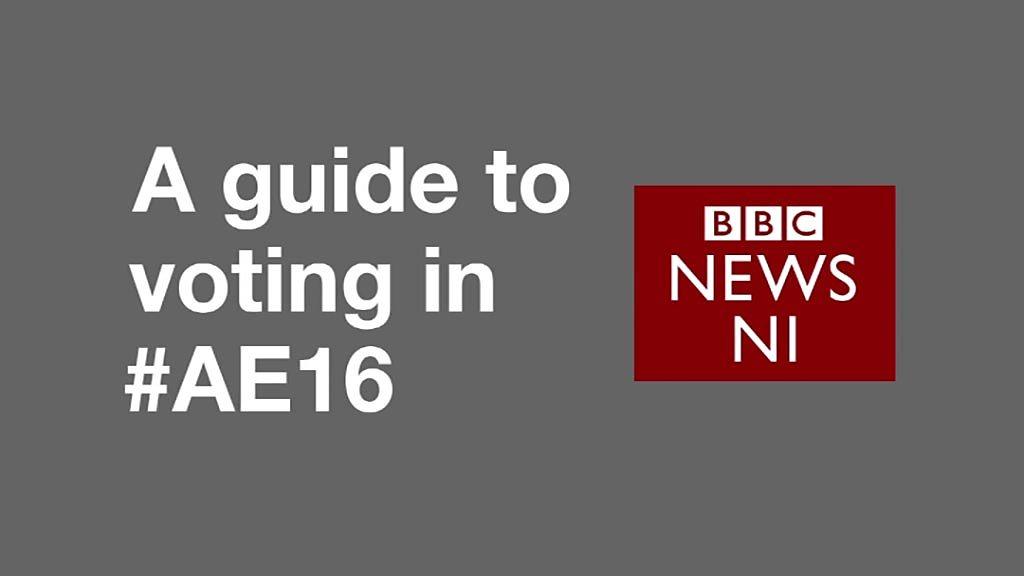NI Assembly election: Three-quarters of seats declared as Friday counting ends
- Published
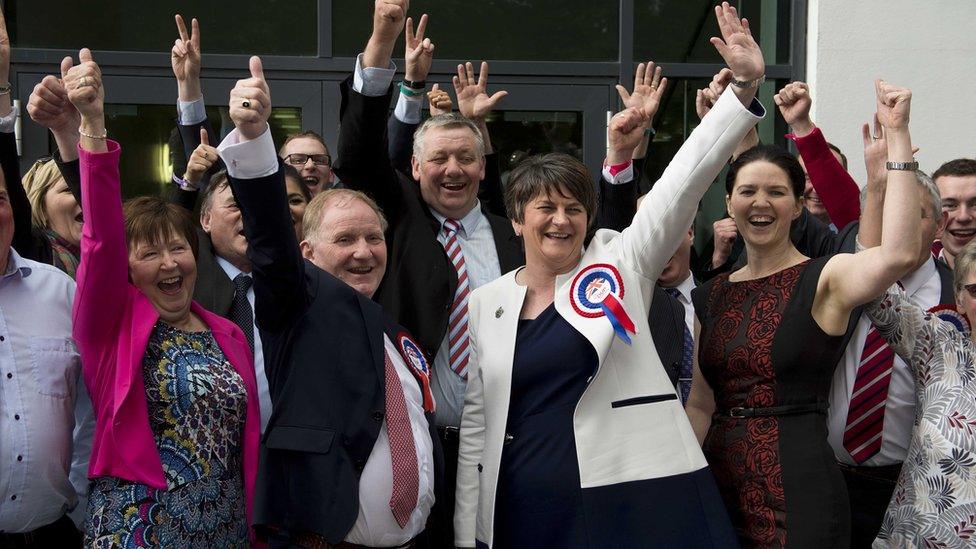
DUP leader Arlene Foster topped the poll in Fermanagh and South Tyrone
The Democratic Unionist Party (DUP) has passed the 30-seats mark after the first day of counting in the Northern Ireland Assembly election.
Three-quarters of the 108 seats have been filled, with the DUP on 33.
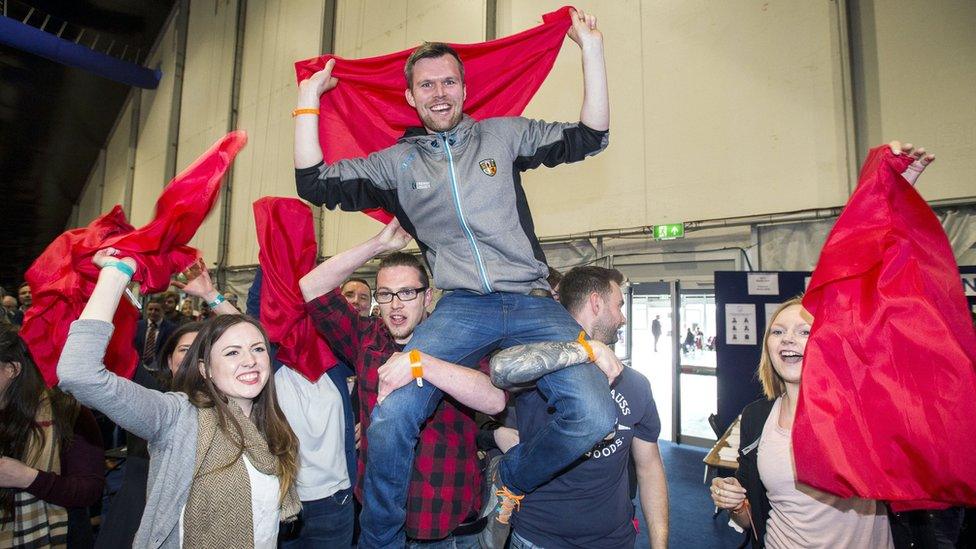
Gerry Carroll took the People Before Profit Alliance's first ever assembly seat
Eleven constituencies have been fully declared, and counting has ended for the night in seven areas.
So far, Sinn Féin has 19 seats, Ulster Unionists have 10, the SDLP (Social Democratic and Labour Party) has nine and the Alliance Party has six.
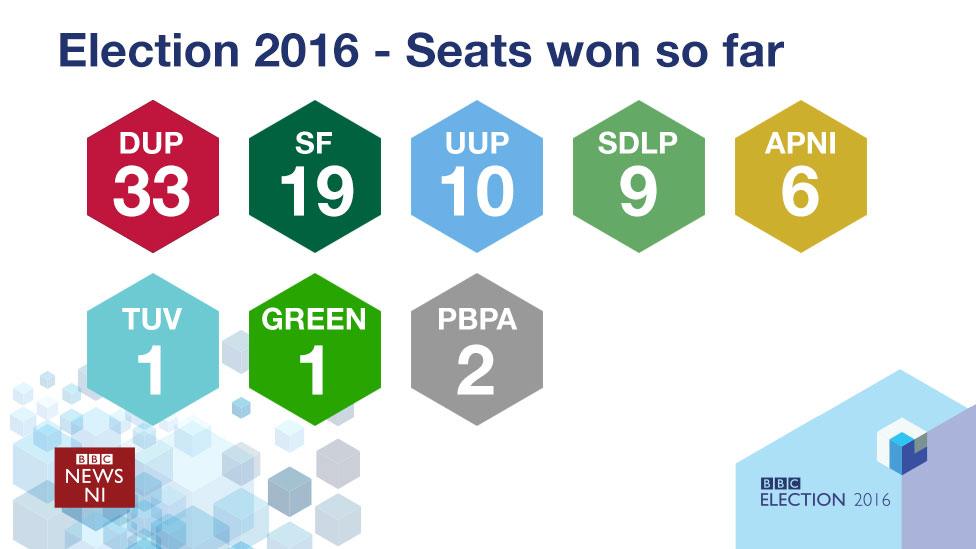
Passing the 30-seats mark is significant for the DUP as it allows the party to deploy a petition of concern in the assembly, which effectively acts as a veto against proposals that its MLAs oppose.
Gerry Carroll won a first ever assembly seat for the People Before Profit Alliance, topping the poll in West Belfast for the left-wing party to take one of the five seats Sinn Féin had held in the constituency.
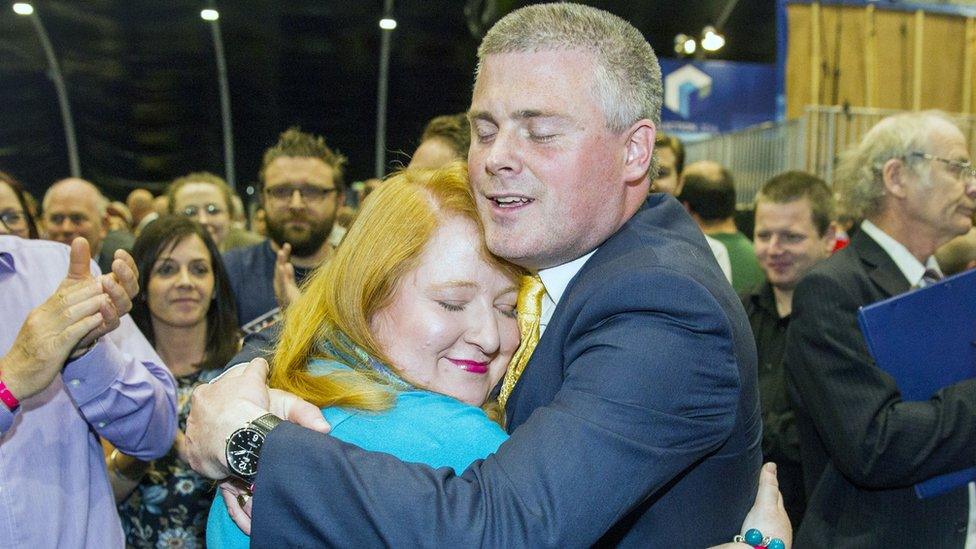
Naomi Long was embraced by her husband Michael after securing her return to the assembly
The SDLP's Alex Attwood retained his West Belfast seat by a narrow margin, overcoming DUP challenger Frank McCoubrey by just 89 votes.
Mr Carroll said his success was evidence that voters had become "fed-up with the status quo" and were "looking for a political alternative".
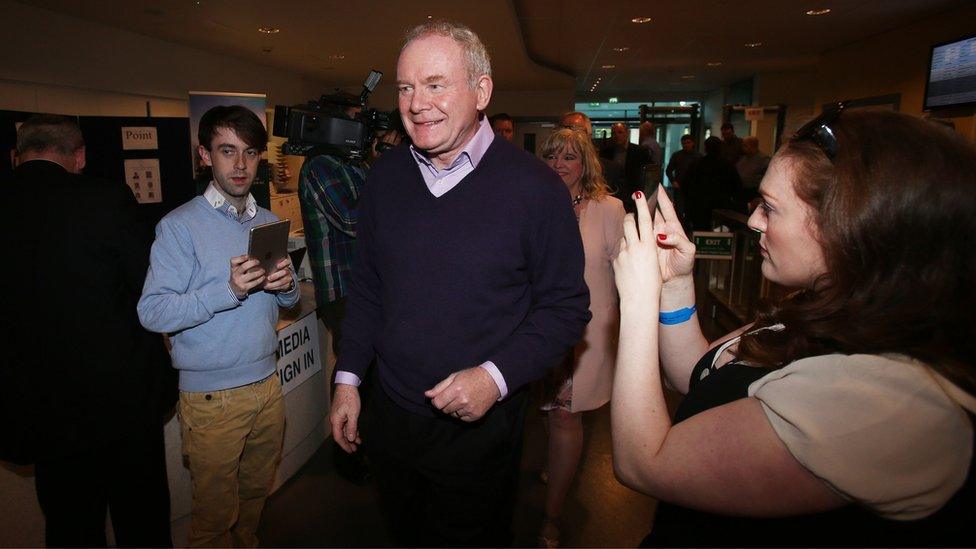
Sinn Féin's Martin McGuinness topped the poll in his home constituency of Foyle
He was joined by his party colleague and veteran civil rights campaigner Eamonn McCann, who was elected in Foyle, taking a seat from the SDLP.
Martin McGuinness topped the poll for Sinn Féin in his home constituency of Foyle, and was elected along with SDLP leader Colum Eastwood.
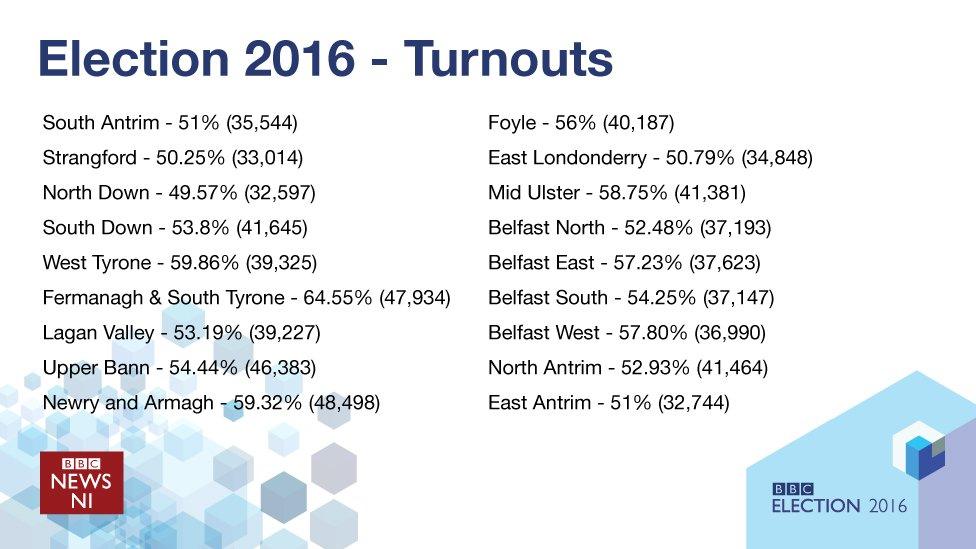
In South Down, John McCallister became the first high-profile MLA to lose his seat when he was eliminated after the first count, but he said his his nine years as an MLA had been a "privilege".
He was twice elected as an Ulster Unionist but left the party in 2013 to form the ill-fated NI21, which imploded just over a year later.
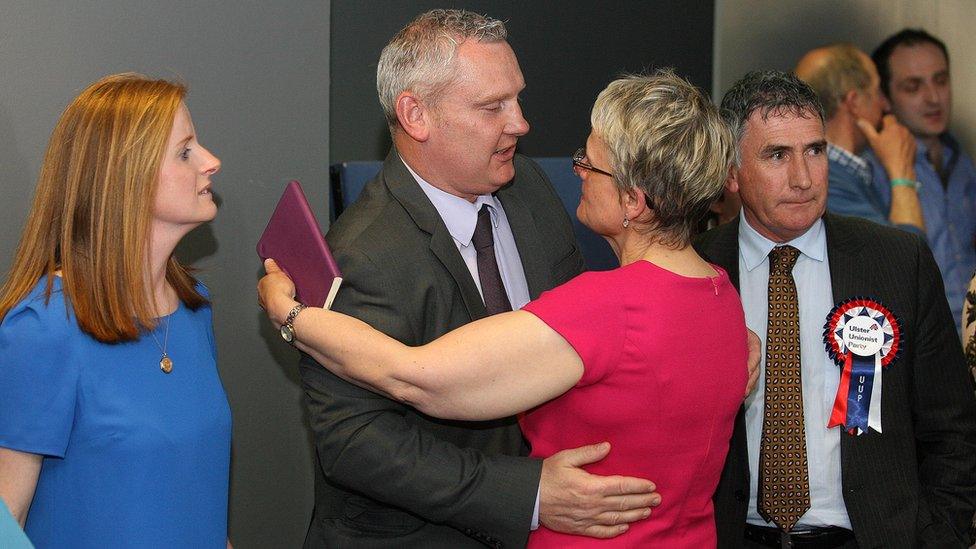
John McCallister lost his South Down assembly seat when he was eliminated after the first count
Ulster Unionist leader Mike Nesbitt said he was "stunned" to top the Strangford poll, but acknowledged that he had been "ambitious" with his prediction of the number of seats his party would win.
Alliance Party leader David Ford crossed the line in South Antrim and Jim Allister, who leads the Traditional Unionist Voice, was re-elected in North Antrim.
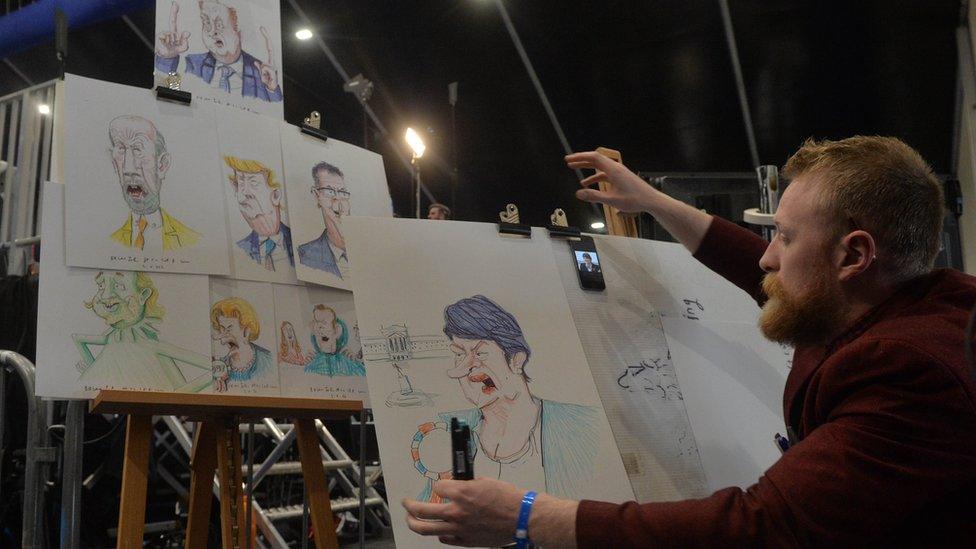
Cartoonist Brian John Spencer added some colour to the count centre in Belfast
Former MP Naomi Long will return to frontline politics after her election for the Alliance Party in East Belfast, where she lost her Westminster seat to the DUP last year.
The DUP's Joanne Bunting has taken the East Belfast seat vacated by former first minister Peter Robinson, who retired earlier this year.
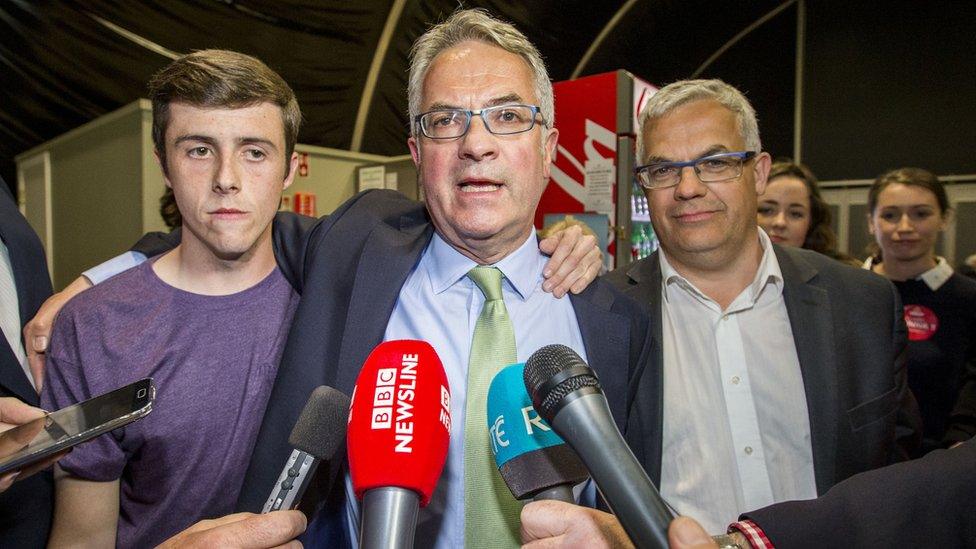
Alex Attwood took the sixth seat in West Belfast for the SDLP by a narrow margin
In South Belfast, the city's former lord mayor Máirtín Ó Muilleoir was elected after topping the poll and Claire Bailey gained a seat in the constituency for the Green Party, saying she wanted to "change the conversation at Stormont".
The DUP also made a gain in the constituency, with councillor Christopher Stalford taking the seat that had been held by the UUP.
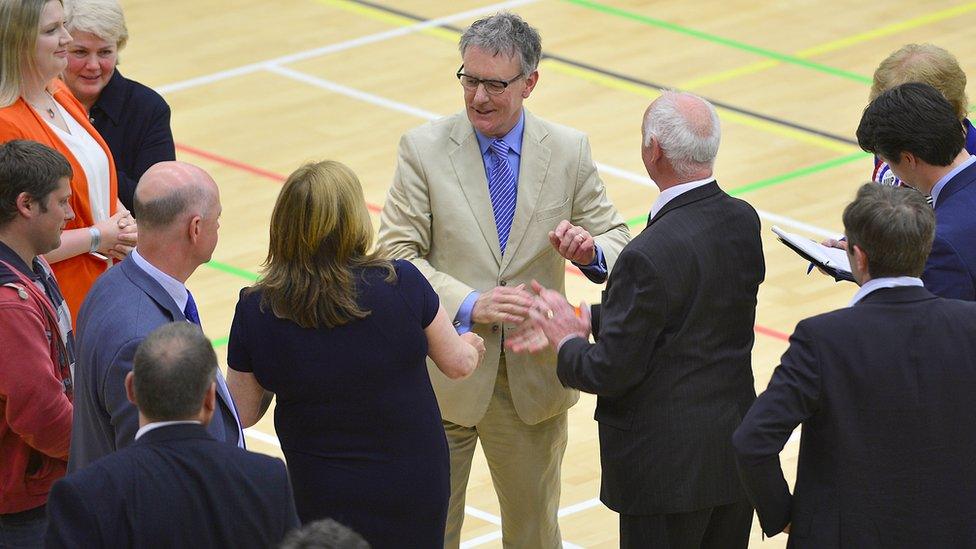
Mike Nesbitt said he was "stunned" to top the poll for the UUP in Strangford
Jenny Palmer, a councillor who left the DUP last year after claiming she had been bullied, took a seat off her former party when she was elected for the Ulster Unionists in Lagan Valley.
Former agriculture minister Michelle Gildernew, who left the assembly to serve as an MP, will return to Stormont after her election for Sinn Féin in Fermanagh and South Tyrone.
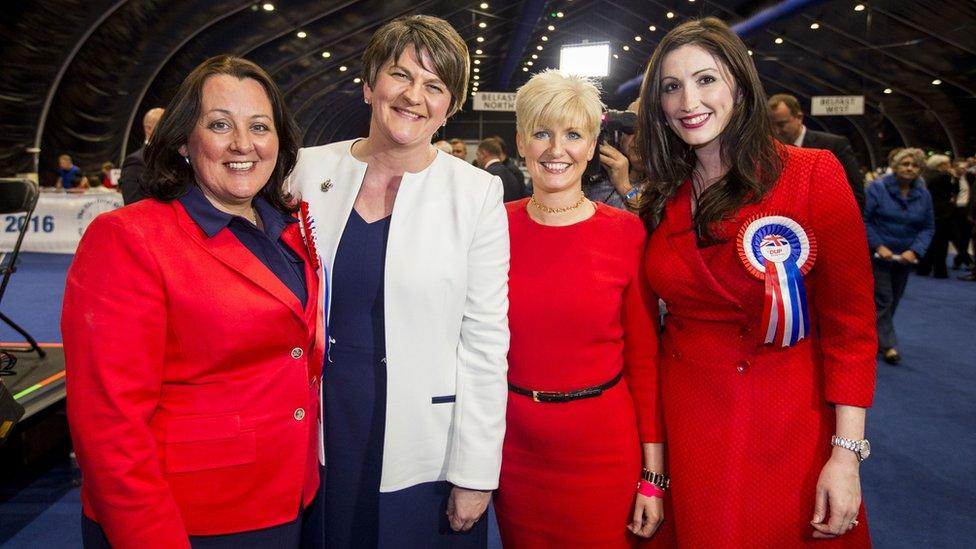
Arlene Foster's DUP had three women elected across the four Belfast constituencies
William Irwin of the DUP came top of the poll Newry and Armagh, while former Armagh gaelic footballer Justin McNulty will be another new face in the assembly for the SDLP after securing his party's single seat in the constituency.
Three Sinn Féin candidates came through in Mid Ulster, but the DUP's McCrea dynasty came to an end when Ian, the son of former MP and MLA William, lost his seat to party colleague Keith Buchanan.
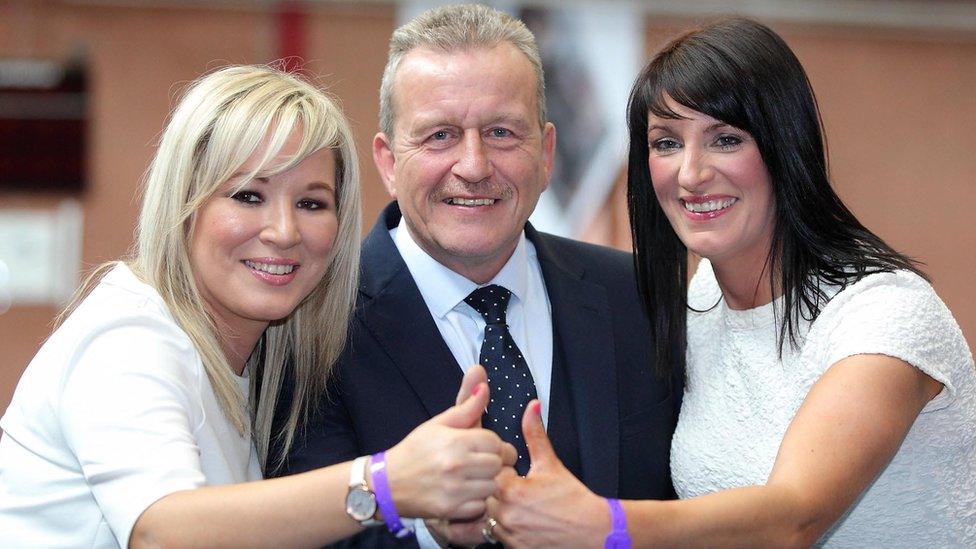
Michelle O'Neill, Ian Milne and Linda Dillon won seats for Sinn Féin in Mid Ulster
Former health minister Jim Wells, who has endured a series of controversies in the past two years, was re-elected in South Down.
He made a formal complaint to the Electoral Office for Northern Ireland after his wife and the husband of Social Democratic and Labour Party (SDLP) candidate Sinéad Bradley were denied entry to the count.
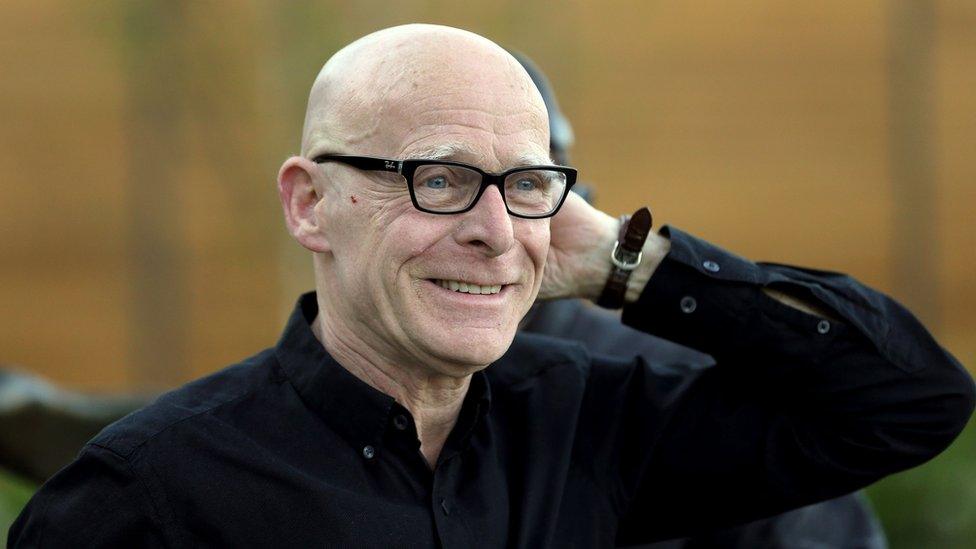
Eamonn McCann took a seat from the SDLP in Foyle for the People Before Profit Alliance

Analysis: Stephen Walker, BBC News NI political correspondent
The leaders of the two largest parties in Northern Ireland will be delighted by the results so far.
The DUP is on course to hold the seats it took in 2011 and Sinn Féin are hopeful they will better their 2011 election when they won 29 seats.
In contrast, it has been a disappointing day for the Ulster Unionist leader Mike Nesbitt and his SDLP counterpart Colum Eastwood.

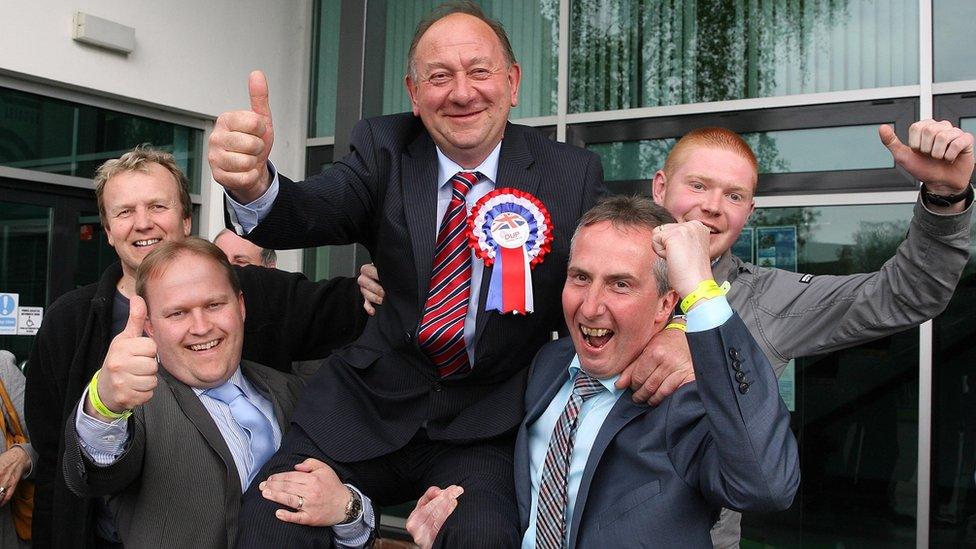
William Irwin came out on top of the Newry and Armagh poll for the DUP
Two hundred and seventy-six candidates have been competing across Northern Ireland's 18 constituencies.
In all, 703,744 people voted in the election, representing a turnout of 54.91%, which was down slightly from the figure of 55.64% in the 2011 assembly election.
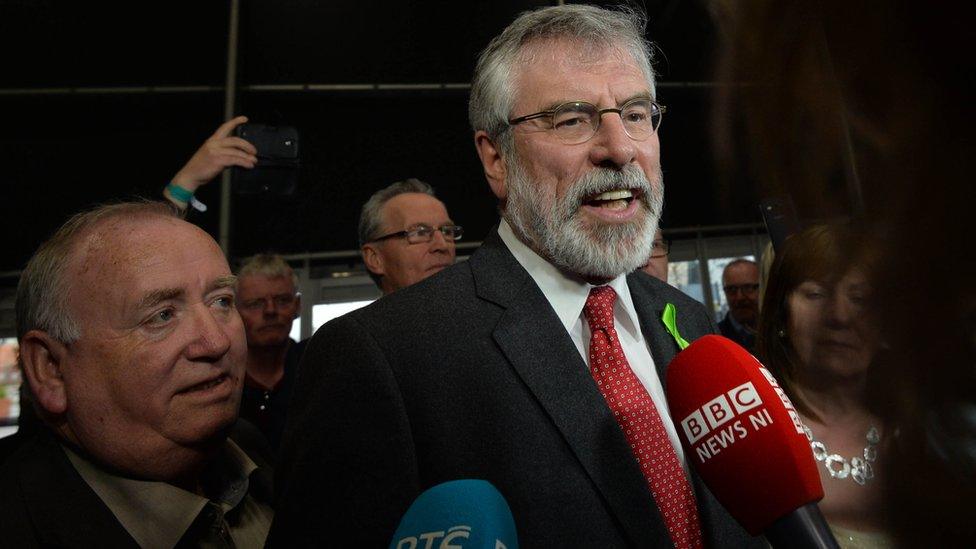
Sinn Féin president Gerry Adams said his party looked like it would maintain 29 seats
In general terms, turnout in eastern constituencies has increased compared to 2011, but dropped in western constituencies.
More than 2,000 staff are involved in counting the votes in eight centres across Northern Ireland.
How does the single transferable vote system work?
In Northern Ireland, MLAs are elected using the Single Transferable Vote (STV) system, a form of proportional representation.
Seven counts will resume on Saturday morning, with the final seats not due to be declared later in the day.
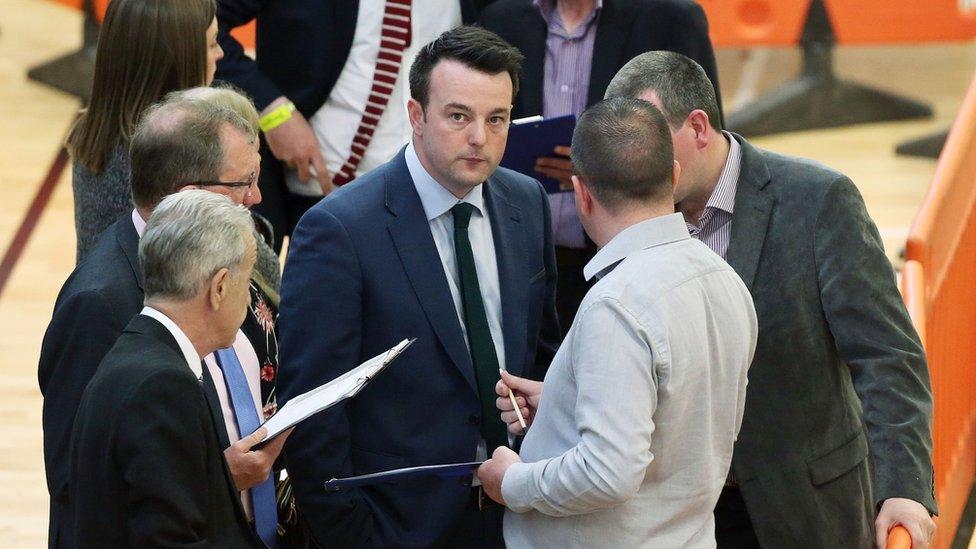
SDLP leader Colum Eastwood came second in the Foyle poll
- Published13 April 2016
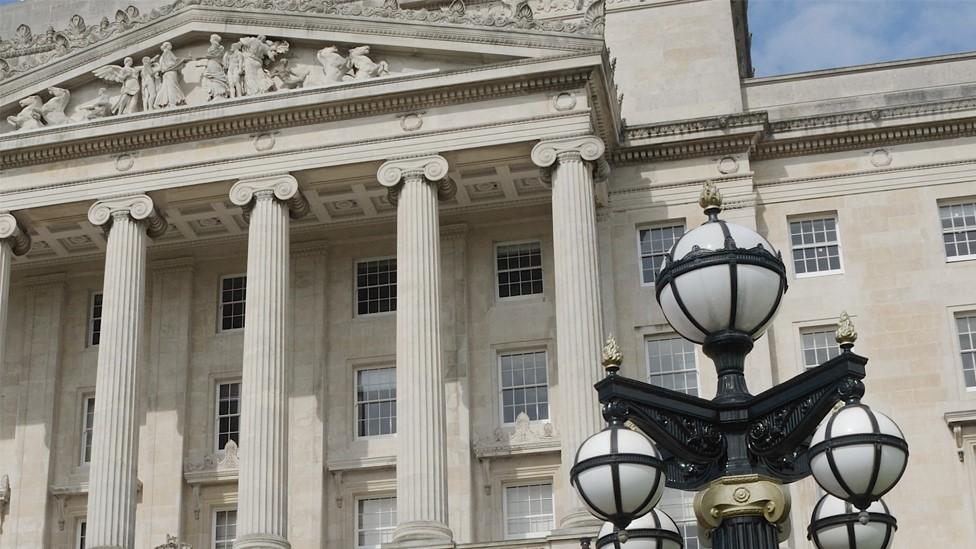
- Published29 April 2016
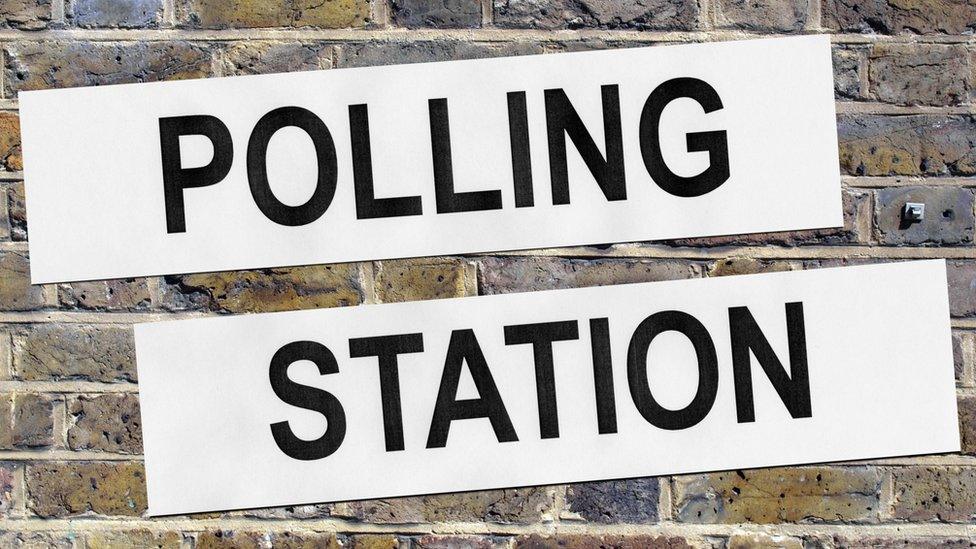
- Published4 May 2016
